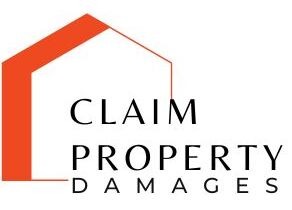Can I Refuse a Home Insurance Inspection and Still Keep My Coverage?
Homeowners in the United States often wonder, “Can I refuse a home insurance inspection and still keep my coverage?” It’s a common concern, especially for those who feel that an inspection is unnecessary or invasive. In this article, we’ll explore the purpose of home insurance inspections, whether you can decline them, and the potential risks of doing so. By the end of this guide, you’ll have a clear understanding of how inspections impact your home insurance coverage and what actions you should consider.
Why Do Insurance Companies Require Inspections?
Home insurance inspections are a standard procedure that allows insurers to assess the condition of a property before issuing or renewing a policy. These inspections are crucial for:
- Assessing Risk: Insurers need to know the condition of your home to assess the risk they are taking on. If your home has significant damage or safety hazards, it could lead to higher premiums or even denial of coverage.
- Ensuring Proper Coverage: Inspections help ensure that the coverage limits on your policy are adequate. If your home has undergone significant renovations or deteriorated over time, an inspection will help adjust your policy accordingly.
- Reducing Fraud: Insurance fraud is a real concern for providers. Inspections help verify the accuracy of the information provided by homeowners during the policy application process.
Can I Refuse a Home Insurance Inspection?
In most cases, refusing a home insurance inspection can jeopardize your coverage. While policies vary from one insurer to another, most companies have the right to require an inspection as part of the underwriting process. If you refuse, the insurer may:
- Deny Coverage: Without an inspection, the insurer may feel uncertain about the condition of the property, leading them to deny issuing or renewing the policy.
- Increase Premiums: If the insurance company believes there are unknown risks, they may raise your premiums to cover potential issues.
- Cancel the Policy: In extreme cases, the refusal of an inspection can lead to cancellation of your existing coverage, leaving you unprotected.
What Happens During a Home Insurance Inspection?
During a home insurance inspection, the inspector will check various aspects of your home to assess its overall condition. This typically includes:
- Roof Inspection: The roof is a critical part of your home, and insurers need to ensure it’s in good condition to avoid potential claims for water damage. If your roof needs repairs or replacement, it may impact your policy. For homeowners in Florida, reliable Roof Contractors can assist with any required repairs.
- Plumbing and Electrical Systems: The inspector will check for outdated or faulty systems that could pose a risk of fire or water damage.
- Foundation and Structural Integrity: Issues with the foundation or structure of the home can lead to significant claims, so this is another focal point for inspectors.
- General Maintenance: Homes that show signs of neglect or poor maintenance may be considered higher-risk properties.
Can Refusing an Inspection Lead to Claim Denials?
One of the biggest risks of refusing a home insurance inspection is the potential for claim denial. In what circumstance would a property insurance claim be rejected? Insurers may reject a claim if they believe they were not given an accurate representation of the home’s condition. For instance:
- Undisclosed Damages: If your roof was damaged and you did not allow an inspection to reveal that damage, the insurer may reject any future claims related to roof leaks or water damage.
- Safety Hazards: Claims related to fires, electrical issues, or structural damage could be denied if the insurer was unaware of pre-existing hazards due to the lack of an inspection.
By refusing an inspection, you’re essentially creating an environment where the insurer can question the validity of any claims. This not only increases the risk of claim denial but may also result in higher out-of-pocket expenses if the insurer refuses to cover damages.
When Might It Be Beneficial to Allow an Inspection?
In some cases, allowing an inspection can work in your favor. For example:
- Unnoticed Issues: An inspection might reveal potential problems you were unaware of, such as minor leaks or electrical issues. Addressing these issues early can prevent more significant problems—and claims—down the line.
- Reassessing Your Coverage: If your home has increased in value due to renovations or upgrades, an inspection can ensure that your insurance coverage reflects your home’s current value.
What to Do If You Disagree with the Inspection Findings
If you’ve allowed an inspection and disagree with the findings, you do have options:
- Request a Reinspection: You can ask your insurer to send a different inspector for a second opinion.
- Provide Evidence: Gather documentation, such as receipts for recent repairs, to show that any flagged issues have been addressed.
- Seek Professional Help: If needed, you can consult with a Property Damage Insurance expert who can guide you on how to contest the inspection findings and protect your coverage.

How to Prepare for a Home Insurance Inspection
To ensure the best outcome from an inspection, follow these steps:
- Repair Any Known Issues: If you know your roof or plumbing needs attention, take care of those repairs before the inspection. Check out reliable Roof Contractors Companies for assistance.
- Clean and Declutter: A well-maintained home gives a positive impression, and tidying up can highlight your attention to detail.
- Document Repairs and Upgrades: Keep records of any significant work done on your home, such as roof replacements, plumbing upgrades, or electrical repairs.
Consequences of Skipping an Inspection
Refusing an inspection can lead to various consequences, including:
- Limited Coverage: Your insurance company may limit the coverage you receive, offering only minimal protection if they cannot fully assess the risk.
- Higher Premiums: The uncertainty caused by a lack of inspection may lead to higher premiums to compensate for potential unknown risks.
- Policy Cancellation: As a last resort, insurers may cancel your policy entirely, leaving you without coverage when you need it most.
Conclusion
So, can I refuse a home insurance inspection and still keep my coverage? The answer largely depends on your insurer, but in most cases, refusing an inspection could put your coverage at risk. Inspections are designed to protect both you and your insurance company by ensuring your home is properly maintained and covered. By allowing an inspection, addressing any issues that arise, and understanding the potential risks, you can maintain your coverage and avoid unexpected claim denials.
If you’re ever in doubt, consult with experts in Property Damage Insurance or contact reputable Roof Contractors to ensure your home remains in top condition and your coverage intact.
By following this guide, homeowners can make informed decisions about home insurance inspections, maintain proper coverage, and avoid the pitfalls of refusing an inspection.
